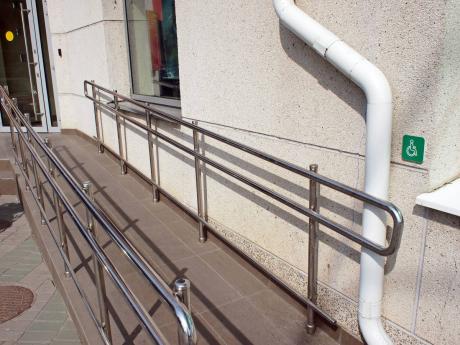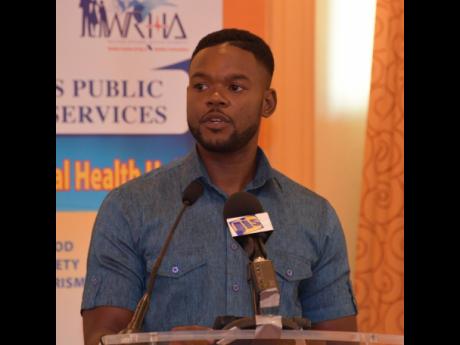StJMC to refuse building plans that neglect disabled community
WESTERN BUREAU:
THE St James Municipal Corporation (StJMC) has announced that, as part of efforts to be inclusive of disabled citizens, it will refuse to grant building permits to developers who submit building plans that are not in line with the stipulations of the recently passed Disabilities Act of 2014.
Montego Bay’s Deputy Mayor Richard Vernon made the announcement while chairing Thursday’s monthly meeting of the StJMC. He also noted that the move is in line with Jamaica’s anticipated development plans to be established by 2030.
“As we move forward to safeguard the welfare of all people, we are ensuring that at the local level, no one is left behind. With that said, all draftsmen, architects and developers must take note of the requirements for persons with disabilities, as we will be rejecting applications for the construction of public and commercial buildings that do not make provision for persons with disabilities,” Vernon told the councillors present at the meeting.
“This local authority believes strongly in achieving sustainability by 2030. Consequently, we will be localising these goals and principles throughout the municipality. It is against this background that this local planning authority is not prepared to approve any commercial or building plan that is designed in contravention to the requirements set out under Section 37 of the Disabilities Act of 2014,” Vernon added.
The Disabilities Act came into effect on February 14 this year, having been passed in 2014 after being held up in Parliament for over a decade prior. The act’s key points of focus include the right to education and training, the right to employment, the right to healthcare, and the establishment of the Disabilities Rights Tribunal to hear and settle complaints of discrimination.
Section 37 of the act states that in building any public or commercial premises, the owner or agent must ensure that the premises are readily accessible to and usable by disabled persons, while being constructed in accordance with the National Building Code.
For Andrew East, president of the Cornwall Combined Disabilities Association, the municipal corporation’s announcement is a welcome initiative since many buildings in Montego Bay do not have the proper facilities in place for the disabled community.
“It is the right approach because the building code has been there for so long and if a person refuses to comply, then they should stop the building or revoke the permit to build. Not wanting to do that is disenfranchising us and blocking us from using their establishment,” said East, who is a wheelchair user.
“Even on St James Street, I normally have to pull up on the sidewalk and ask for help, and these are prominent business places that persons need to use. Not having the appropriate settings to give us access to the buildings is limiting and handicapping us,” East added.
In the meantime, Vernon said that efforts will be made to sensitise builders in St James on the necessity of facilitating the disabled community when drafting their construction plans.
“As we seek to create a safer, more inclusive environment, we will be hosting workshops for architects and draftsmen to get them more au fait (knowledgeable) with the required building codes. Together, we can create a more sustainable St James,” Vernon said.


